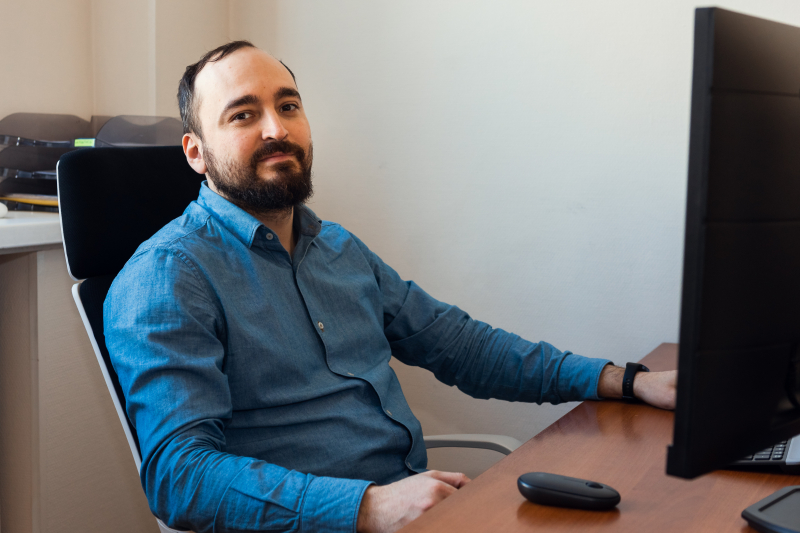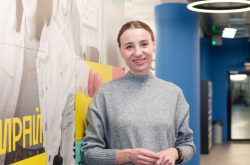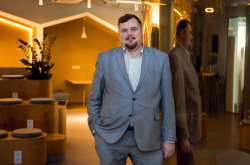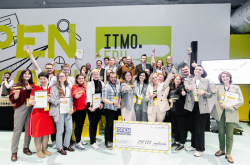You studied automation and control in your Bachelor’s and Master’s programs, but you decided to switch to robotics for your PhD. Why?
Robotics is a future-oriented and very exciting field that tackles many questions of mechanics, programming, design, and materials science. Also, as a Master’s student I started teaching robotics at the Presidential Physics and Mathematics Lyceum No. 239. My students asked me deeply professional questions, so I had to really get into all aspects that we touched upon, but mostly programming. Back then, the first Robot Operating System (ROS) was released and by now it’s become almost a standard – if you are in robotics, you cannot enter the market without it. So it all started with teaching and then I summarized my experience in a teaching guide on modeling and control of robotic systems.
How did you start teaching at ITMO?
It happened because I felt something wasn’t right. I knew that there were very cool concepts in the fields of mathematics and engineering and when I taught school students, I explained these concepts almost at the university level. I started coming across questions such as how theory can be connected to applied robotics – how would differential equations result in robots moving better. And this got me thinking. It makes sense to me that even the most complex concepts can be explained using toys, but I still sometimes meet first-year students who expect that we will be working with LEGO blocks in our classes. And then, when they get the sense of the amount of equations behind each robot, they start treating the course differently.
After I defended my PhD thesis in 2014, we started working on a robot economics project. A large number of its founders and our collaborators are my university friends or former students. And as we expanded this frontier project, we faced the issue of having to look for truly high-profile developers who would get its idea and architecture.
Alexander Kapitonov. Photo by Dmitry Grigoryev, ITMO.NEWS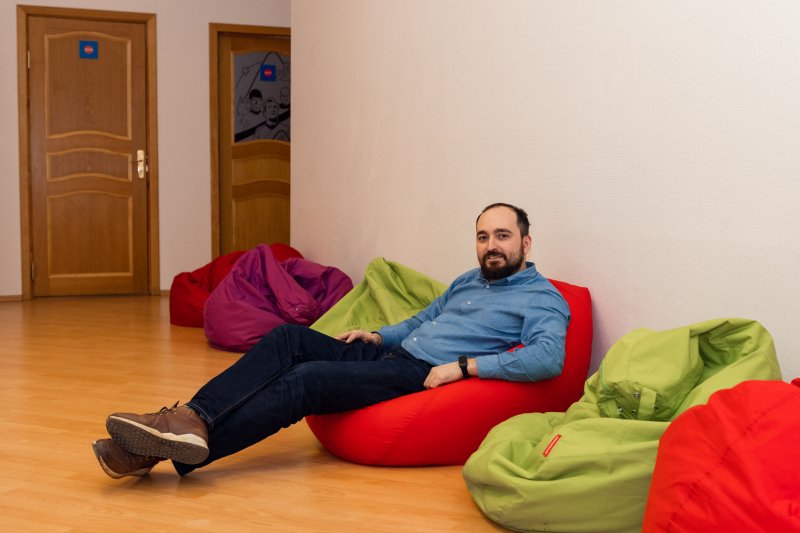
What do you like about the university?
It’s a tough question. First of all, I like our students: they are open-minded and do not shy away from risks. Of course, some of them want to quickly get the skills they need and start their career, but we also have a great number of dreamers who want to bring their ideas to life.
How would you describe your teaching style?
I have my own recipe that I think brought me the ITMO.EduStars win. First, I let my students decide on the starting point – what they want to be doing. I am only advising on their choices in terms of logic. For instance, I tell them that they shouldn’t immediately work on complex technologies and should start with something that will definitely function. But if they insist on venturing into a complex topic, we develop a plan to help them cover it step by step.
Secondly, my students set their weekly to-do lists and I help them with the workload and make sure that they divide each huge task into smaller ones. In the course Software for IoT, students can pick any associated task – develop a prototype of software or a system. Then we meet to discuss what went well and what caused problems. This way, students are a lot more motivated to complete the tasks because they choose what to do and if they don’t do it, it is their responsibility.
Now I want to try another motivating scheme at our faculty – special points in each subject. Students will be able to ask any lecturer for recommendations on what they should visit or take part in. And then they will get points for participating in meetups, hackathons, and conferences outside the university; these points can later be counted towards any course taught at the faculty. I believe that it could be a university-wide program. Sometimes, students have unresolved conflicts with their lecturers – and such additional points would help them pass the course. It is also a chance to try different fields and find the ones students are truly interested in. Within educational programs, we teach students about existing trends and technologies, but you have to go beyond what’s offered at university to catch up with frontier research.
We have suggested the points system to our physicists and they seemed interested. As part of an optional course, students will help automate laboratory physical lab equipment and will get additional points for completing it successfully. I think that this way university education will acquire the features of an internship and students’ competencies will depend on who they collaborated with and how many points they earned.
Alexander Kapitonov. Photo by Dmitry Grigoryev, ITMO.NEWS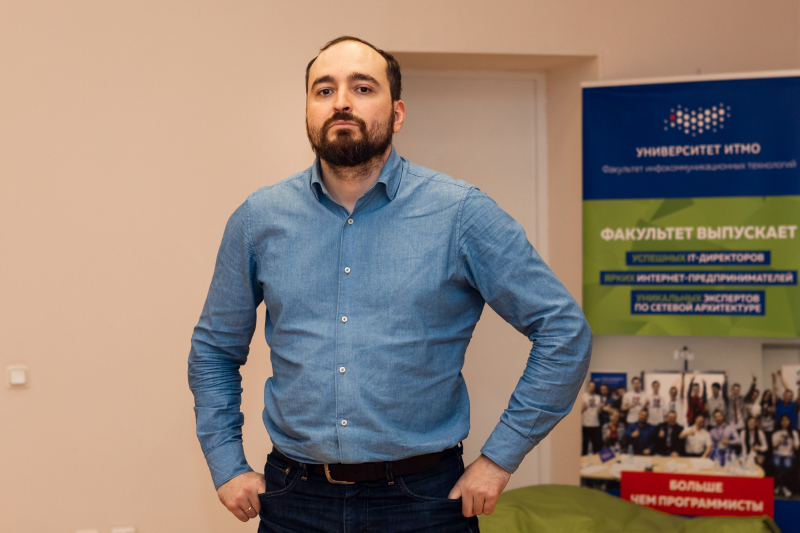
You discussed the importance of motivating students during an open debate with Alexander Mayatin, another ITMO.EduStars winner. You also said that such new technologies as Boston Dynamics Spot Education should be provided to universities as subscription services. What other academic trends do you expect to see in the future?
I believe that our friendships are shaped by us constantly being in the same group of people. You keep your university connections in your adult life. On the one hand, staying in touch with your groupmates in the first 2-3 years of studies can be beneficial. On the other hand, students can spend all the following years communicating and studying remotely. For instance, they will get together once or twice a year for some intensive classes and then get back to remote learning. That’s the trend I see – you no longer have to constantly be physically present with your peers.
You’ve been the dean of ITMO’s Faculty of Infocommunication Technologies since 2020. What are your responsibilities?
It might seem that my main responsibility is designing educational programs, but I would say it’s only partly true. First of all, I am responsible for choosing the people who will interact with students. I am looking for lecturers, communicating with them, and providing working conditions so that they can contribute to the academic process – these are, I think, the crucial tasks for the head of an educational program. On the one hand, I need to bring in some diversity and create stressful situations in the academic process, because it’s no good without them. It’s better that students make their mistakes at university than if they risk their reputation and salary by doing something wrong at work. On the other hand, we have a guide to the faculty that contains all our values and is meant to convey the vibe of the faculty to all newcomers. I believe that as the dean, I am responsible for creating an atmosphere or openness and trust for all of the faculty members. I am broadcasting the faculty’s collective feelings about itself, the people in it, and the way they want to work.
Did your victory in ITMO.EduStars change your teaching style?
First of all, the approaches that I stand for were recognized by the university’s academic community. Sometimes the projects that I work on don’t have direct applications. Despite the fact that the university prioritizes project-oriented learning, every lecturer understands this concept in their own way. Some think that there has to be a customer that places an order for us to complete, but I believe that a project is not about what you do but about how you do it. If you are working on a project, you are relying on a certain and specific kind of methodology.
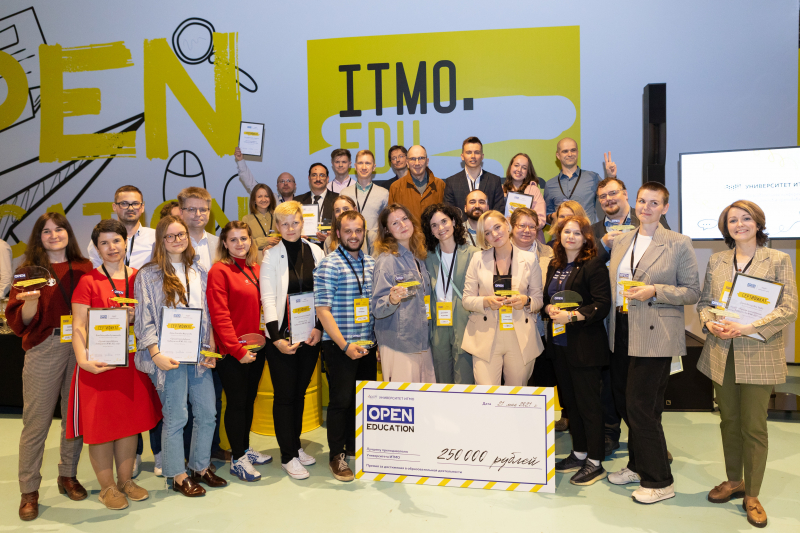
Winners of the 2021 ITMO.EduStars contest. Photo by Dmitry Grigoryev, ITMO.NEWS
In your free time you enjoy cycling and walking. Do you have any favorite routes?
I love walking in Pavlovsk, Pushkin, as well as the Alexandrovsky and Ekaterininsky parks. I also enjoy rock climbing – it is not unlike solving puzzles with your whole body; you have to decide where to put your weight in order to move on to the next stage. It’s very intellectual and I love it.
